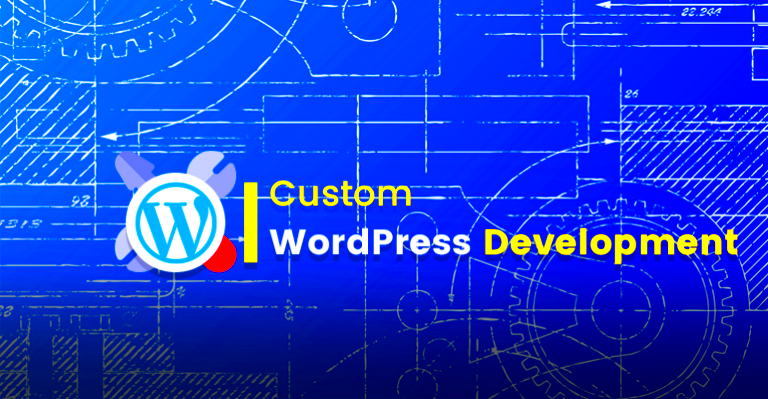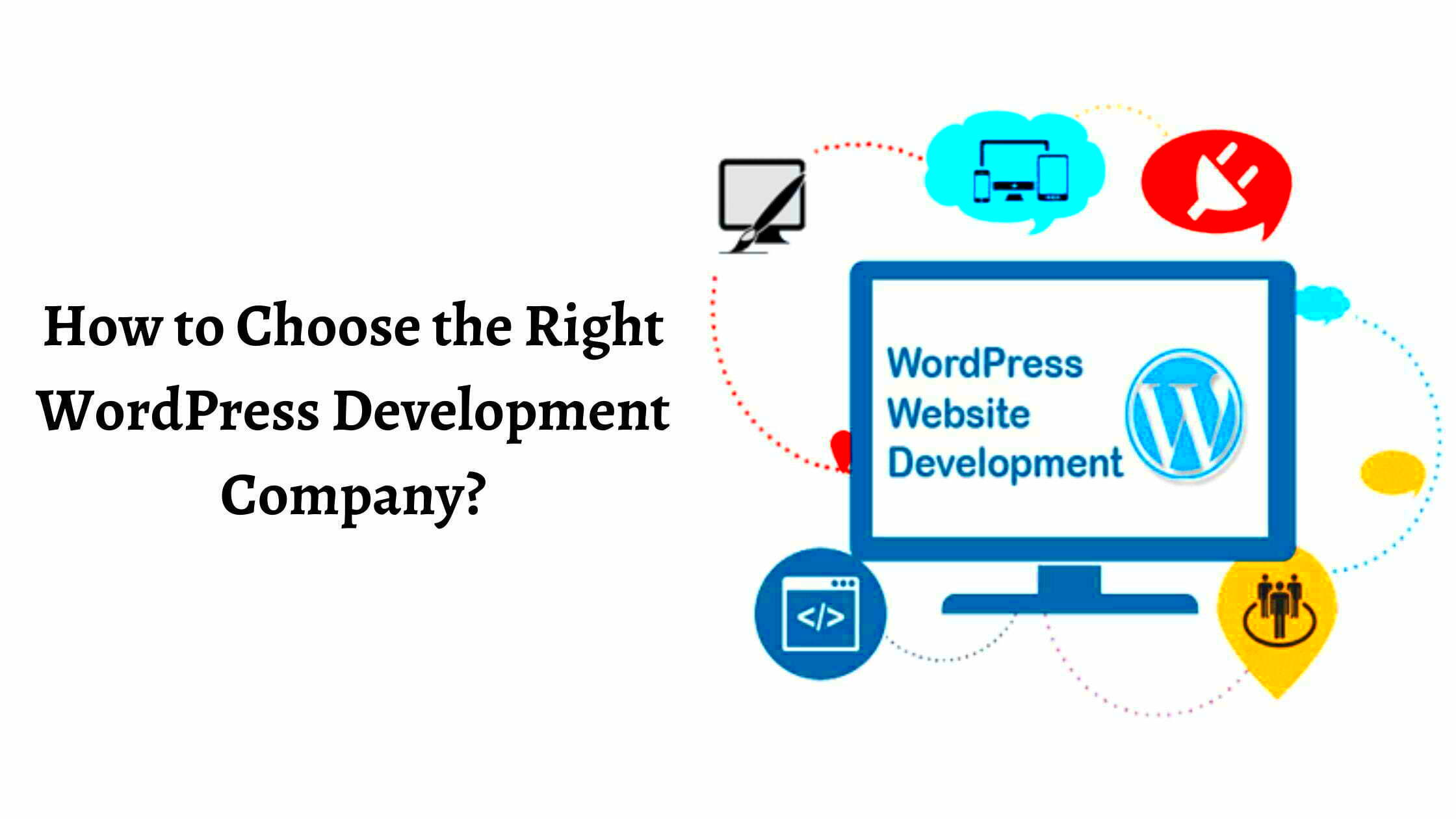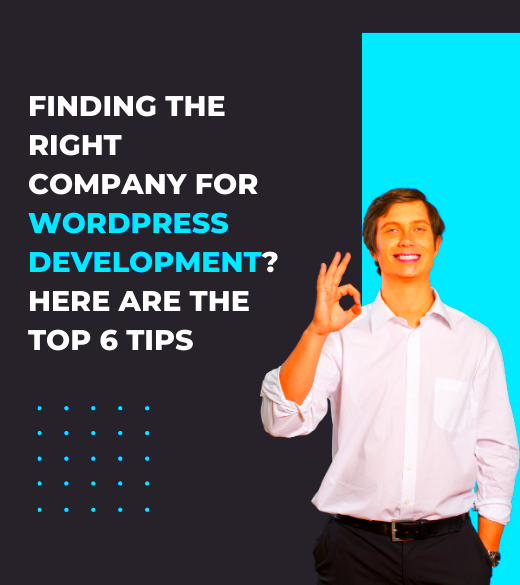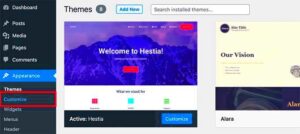In today’s digital landscape, owning a stunning website is more important than ever. Custom WordPress development provides a tailored solution that meets your unique business needs. Instead of using generic themes and plugins, this approach allows you to create a site that truly reflects your brand identity, enhances user experience, and drives engagement. Let’s dive deeper into what custom WordPress development is and how it can revolutionize your online presence.
Benefits of Custom WordPress Development

Choosing custom WordPress development has a slew of advantages that can set your website apart in a crowded marketplace. Here are some key benefits:
- Personalized Design: Your website will be designed specifically for your business, allowing for a unique look that aligns with your brand.
- Enhanced Functionality: Custom development allows for unique features and functionalities that can improve user experience and meet specific needs.
- SEO Optimization: Custom WordPress sites can be optimized for search engines from the ground up, helping boost visibility and attract organic traffic.
- Better Performance: A tailored WordPress site typically runs faster and smoother since it’s built for your specific requirements.
- Scalability: Custom development makes it easier to expand and add new features as your business grows.
- Security: Custom solutions can incorporate enhanced security measures to protect against vulnerabilities commonly found in standard themes and plugins.
In summary, custom WordPress development offers a myriad of benefits that can elevate your brand’s online presence, making it a preferred choice for businesses looking to stand out. When searching for your ideal partner, keep these advantages in mind, as they could be the key to unlocking your website’s full potential.
Key Features to Look for in a Development Partner

Choosing the right development partner for your custom WordPress project is crucial for your success. Here are some key features you should look for:
- Expertise and Experience: Look for a company with a proven track record in WordPress development. They should have experience not only in creating websites but also in handling complex customizations and plugins. Check their portfolio to see the diversity and complexity of their work.
- Technical Proficiency: Your partner should be well-versed in various programming languages and technologies, including PHP, HTML, CSS, and JavaScript. In addition, they should be familiar with the latest WordPress trends and updates.
- Responsive Design Skills: In today’s mobile-first world, having a responsive design is non-negotiable. Your partner should prioritize mobile optimization to ensure your site looks great on all devices.
- SEO Best Practices: A solid development partner will incorporate SEO best practices from the start. This involves optimizing site speed, ensuring proper site structure, and implementing best practices for metadata and content.
- Support and Maintenance: Choose a partner who offers ongoing support and maintenance services post-launch. This is vital for keeping your site updated, secure, and running smoothly over time.
- Clear Communication: Effective communication is key to any successful partnership. Your development company should be transparent and responsive, providing regular updates and being open to feedback.
Each of these key features can significantly influence the outcome of your project, ensuring that you choose a partner who aligns with your goals and vision.
Steps to Identify the Right Custom WordPress Development Company
Finding the right custom WordPress development company can feel overwhelming, but by following these steps, you can streamline your search and make an informed decision:
- Define Your Project Requirements: Before starting your search, outline your project goals and requirements. Consider factors like the desired functionalities, design preferences, and budget.
- Conduct Thorough Research: Begin with a Google search for WordPress development companies. Review their websites to gauge their expertise. Pay attention to their portfolio, client testimonials, and case studies.
- Evaluate Their Technical Skills: Once you shortlist a few companies, assess their technical skills. Look for evidence of up-to-date knowledge in WordPress, responsive design, and SEO practices through their blog or resources.
- Check Reviews and Ratings: Platforms like Clutch or GoodFirms can provide insights into the experiences of past clients. Look for feedback regarding their professionalism, quality of work, and adherence to deadlines.
- Request a Consultation: Schedule consultations with your top choices. This is a chance to discuss your needs in detail and gauge their understanding and enthusiasm for the project.
- Compare Proposals: After consultations, compare the proposals you receive. Evaluate not just the cost, but also the timeline, complexity of their suggested solutions, and any included support services.
- Make a Decision: Finally, trusting your instincts is key. Choose a partner that you feel comfortable with and confident in, based on their expertise and your interactions.
By clearly defining your requirements and carefully evaluating potential partners, you’ll be well on your way to finding the right custom WordPress development company for your project.
Questions to Ask Potential Development Partners
Finding the right custom WordPress development partner isn’t an easy task. You’ll want to ensure that they align with your goals and can deliver what you’re envisioning. To help you sift through the options, here’s a handy list of questions to ask potential development partners:
- What is your experience with WordPress development? This question will help you understand their background and specialization in WordPress. An experienced developer should be familiar with themes, plugins, and custom functionalities.
- Can you provide references or testimonials? Previous client testimonials or case studies can help you gauge their reliability and the quality of their work.
- What’s your process for development and project management? Understanding their workflow gives insight into how organized they are. Look for a partner familiar with Agile or other collaborative methodologies.
- How will you ensure the site’s security and performance? Inquire about their strategies regarding cybersecurity as well as speed optimization. A website’s performance can directly impact user experience.
- What kind of post-launch support do you offer? Knowing that you’ll have assistance after the launch can ease concerns about managing unforeseen issues.
- How do you handle changes and revisions? It’s important to understand how flexible they are with updates, modifications, or additional features during and after the development phase.
Taking the time to ask these questions will equip you with the knowledge needed to make a well-informed decision when choosing your custom WordPress development partner.
Evaluating Portfolios and Case Studies
When searching for the ideal custom WordPress development partner, examining their portfolio and case studies is crucial. This step will help you visualize their ability to meet your expectations and develop a high-quality website. Here’s how to effectively evaluate these aspects:
- Diversity of Projects: Look for a variety of projects that show the company can tackle different types of websites. A well-rounded portfolio indicates versatility and adaptability.
- Design Aesthetics: Pay attention to the design quality. A strong visual appeal is vital in keeping users engaged with your site, so compare their designs against trends in your industry.
- Functionality: Check if the websites include custom features or unique functionalities. This demonstrates the partner’s capability in creating tailor-made solutions that meet specific client needs.
- User Experience: Evaluate how user-friendly their previous projects are. The simplicity of navigation and overall usability are critical for the success of a site.
- Case Studies: A detailed case study is even more informative than a simple portfolio piece. It should outline the challenges faced, the solutions implemented, and the results achieved. Look for metrics like increased traffic or conversion rates.
- Client Feedback: If available, read through any client feedback showcased in case studies. This can give you insight into the partner’s communication skills and how they handle project challenges.
In the end, evaluating portfolios and case studies will provide a clearer picture of your potential partner’s strengths and weaknesses. Don’t rush through this process; it’s an essential part of finding someone who will help realize your vision!
7. Understanding Development Costs and Budgeting
When embarking on a custom WordPress development project, one of the first concerns that often arises is cost. After all, understanding development costs and effective budgeting is crucial to ensure your project remains financially viable. So, how do you get a grip on what you might expect to spend?
First, it’s essential to recognize that development costs can vary widely based on several factors:
- Scope of the Project: The larger and more complex your project, the more you can expect to spend. A simple website with a few pages will cost significantly less than a fully-fledged e-commerce platform.
- Customization Level: If you require extensive custom features or unique designs, this can add to your costs. Stock themes and plugins will generally be cheaper.
- Developer Expertise: Hiring a seasoned developer or a reputable agency can be more expensive, but the quality of work often justifies the investment.
- Location: The geographical location of the development company can impact pricing. Generally, developers in North America and Western Europe charge higher rates compared to their counterparts in Asia or Eastern Europe.
Now, once you have a rough idea of the costs involved, the next step is budgeting appropriately. Here’s a quick guide on effective budgeting:
- Set a Clear Budget: Determine a realistic budget based on your research of costs.
- Prioritize Features: Identify essential features versus nice-to-have elements to avoid overspending.
- Include Contingency Funds: Always set aside some budget for unexpected expenses—10% is a common recommendation.
- Communicate with Your Developer: Be transparent about your budget constraints, as this will help them recommend solutions that fit your financial plan.
In conclusion, understanding development costs and establishing a budget is vital for the success of your custom WordPress project. With careful planning and clear communication with your development partner, you can navigate the financial aspect of your project smoothly.
8. Conclusion: Making an Informed Decision
Choosing the right custom WordPress development company can feel overwhelming, especially with so many options and factors to consider. However, by arming yourself with knowledge and being thoughtful in your decision-making process, you’re already on the right path.
Here are some key takeaways to help you make an informed decision:
- Evaluate Your Needs: Understand your project requirements thoroughly. What do you want your website to achieve? Make a list of must-have features versus nice-to-have ones.
- Research Potential Developers: Spend time researching different companies. Look for portfolios, client reviews, and case studies. If possible, speak to past clients to get a feel for their experience.
- Consider Communication: A successful partnership often hinges on effective communication. Ensure that the development team is easy to reach and understands your vision.
- Get Detailed Proposals: Once you’ve narrowed down your choices, request detailed proposals that outline timelines, costs, and deliverables. This can give you a clearer picture of what to expect.
- Trust Your Gut: Finally, don’t underestimate the power of intuition. If a particular company resonates with you, it might just be the right fit.
By following these steps, you’re positioning yourself to make a well-informed choice that aligns with your goals, budget, and expectations. Remember, selecting the right custom WordPress development partner can significantly impact your project’s success. Take your time, gather your insights, and when you’re ready, make that leap of faith with confidence!



